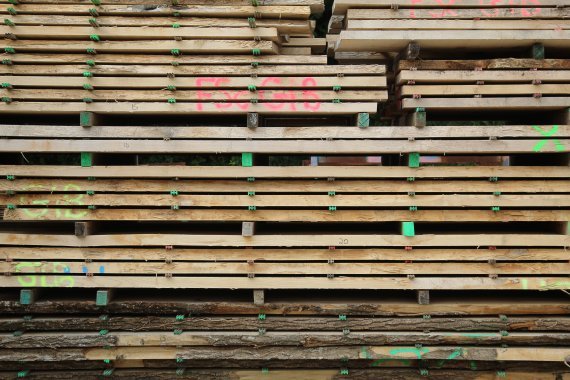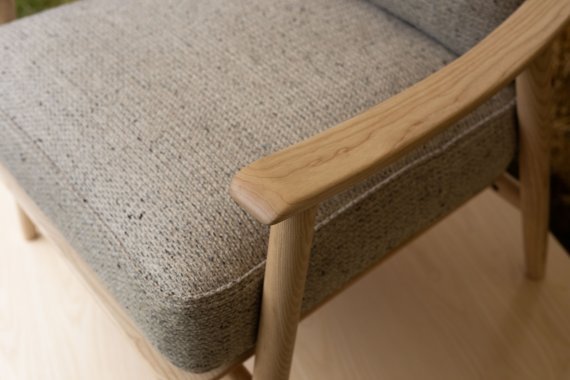Sustainability
An Active Approach
Managing existing woodlands more effectively is key to boosting Britain’s home-grown timber supplies.
British woodland accounts for over 8 million acres, or 13%, of the entire country, yet much of it is not actively managed for timber production. As a result, manufacturers have to rely on imports and that in turn means landowners in the UK have no real incentive to make their woodlands more productive.
Through our partnership with Grown in Britain (GiB), we aim to help change that. By creating a demand for British timber, we give woodland owners a reason to manage their woodlands and forests more productively. In this context, ‘productive’ means woodland and forestry resources planned, planted and managed to generate timber, fibre and other wood-based products, but also for a range of social and environmental benefits. The more productive our domestic woodlands, the less reliant we would be on imported timber. Strengthening the supply chain will benefit everyone involved.
But this more active management isn’t just about producing timber in greater quantities. For us as a furniture maker, it’s about growing timber of the right quality.

In a dark, overgrown woodland, the trees have to compete for resources, of which the most important is light. In their urgent quest to reach it, trees tend to grow thin, straggly and twisted. The resulting wood, though valuable for biomass, firewood and other commodities, cannot meet its full potential, for timber and furniture making. Actively managing woodland means carefully selecting individual trees and giving them enough light and space to grow tall, strong and, crucially, straight. These trees yield a wonderful natural material that we can give another life to, as beautiful furniture, with the added benefit of sequestering the carbon stored in the natural material for the lifetime of the piece of furniture.

Managing woodland in this way is also enormously beneficial to wildlife and biodiversity. Fewer, bigger, straighter trees means a more open canopy, which allows a wealth of plant and wildlife to thrive on the woodland floor. A more diverse, open and well managed woodland is also more resistant to natural pests and diseases. Over time, a robust habitat is created that’s home to a wide variety of species, including birds and insects. And, well-managed woodland and forests are inviting spaces for people, encouraging walking, exploring and supporting a happier, healthier population.
Of course, none of this is achieved overnight: to meet GiB metrics, woodland typically requires active management for at least 30 years. So we see our partnership very much as an investment, in our own future, our wider industry and the nation as a whole.

If you would like to keep updated with the latest blogs, new arrivals and the latest offers from ercol, you can sign up to our newsletter here.